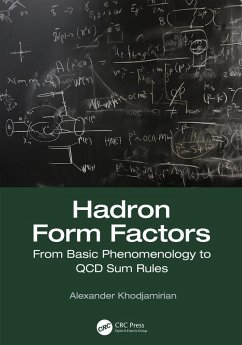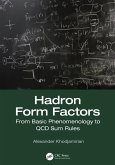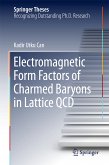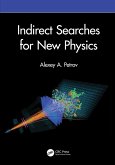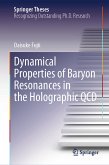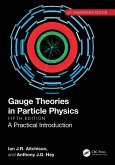Dieser Download kann aus rechtlichen Gründen nur mit Rechnungsadresse in A, B, BG, CY, CZ, D, DK, EW, E, FIN, F, GR, HR, H, IRL, I, LT, L, LR, M, NL, PL, P, R, S, SLO, SK ausgeliefert werden.
The book is addressed to students specialising in QCD phenomenology who want to familiarize themselves with the general concepts and learn how the calculations of hadron form factors are done in practice using several standard methods, without digging too much in the theory background. It will also be useful for experimenalists who are interested in an overall picture and want to understand where the theory predictions come from.
The last three chapters contain a somewhat more advanced material as compared to the rest of the book.
They will be very useful for practitioners as an introduction to the techniques of QCD sum rule calculations.
Prof. Dr. Vladimir Braun, Universität Regensburg
The reader interested in the hadronic phenomenology based on Quantum Chromodynamics (QCD) will find only a few books on the market, if at all.
Alexander Khodjamirian's book "Hadron Form Factors: From Basic Phenomenology to QCD Sum Rules" solves just that problem with regards to a particular aspect of phenomenology, namely the hadronic form factors. Alexander Khodjamirian covers this topic in a very consistent manner, from the beginning to the end. The book starts from a brief introduction which explains how form factors had appeared in atomic physics and then extends this notion to the hadronic form factors as they are known today, after 50 years of development of QCD. More exactly (and to avoid confusion), Alexander Khodjamirian focuses on analytic QCD, the area of his expertise. Chapter 1 presents a concise review of QCD, and introduces relevant notation and techniques. It also describes main phenomenological facts about relevant parameters and hadronic form factors {\em per se}. In Chapter 2 a long journey in the analytic QCD-based theory begins. As a remarkable feature of this book I should mention that the reader will find here a large number of various form factor problems - basically, all those playing a crucial role in understanding the hadronic phenomenology. It also explains {\em en route} the sum rule method, starting from the SVZ sum rules, through generalizations, to the light-cone sum rules most relevant in the form factor analyses. The book is pedagogically written, and I should add, quite masterfully. It will provide a great service to graduate students and young researchers in this area.
Mikhail Shifman, University of Minnesota

